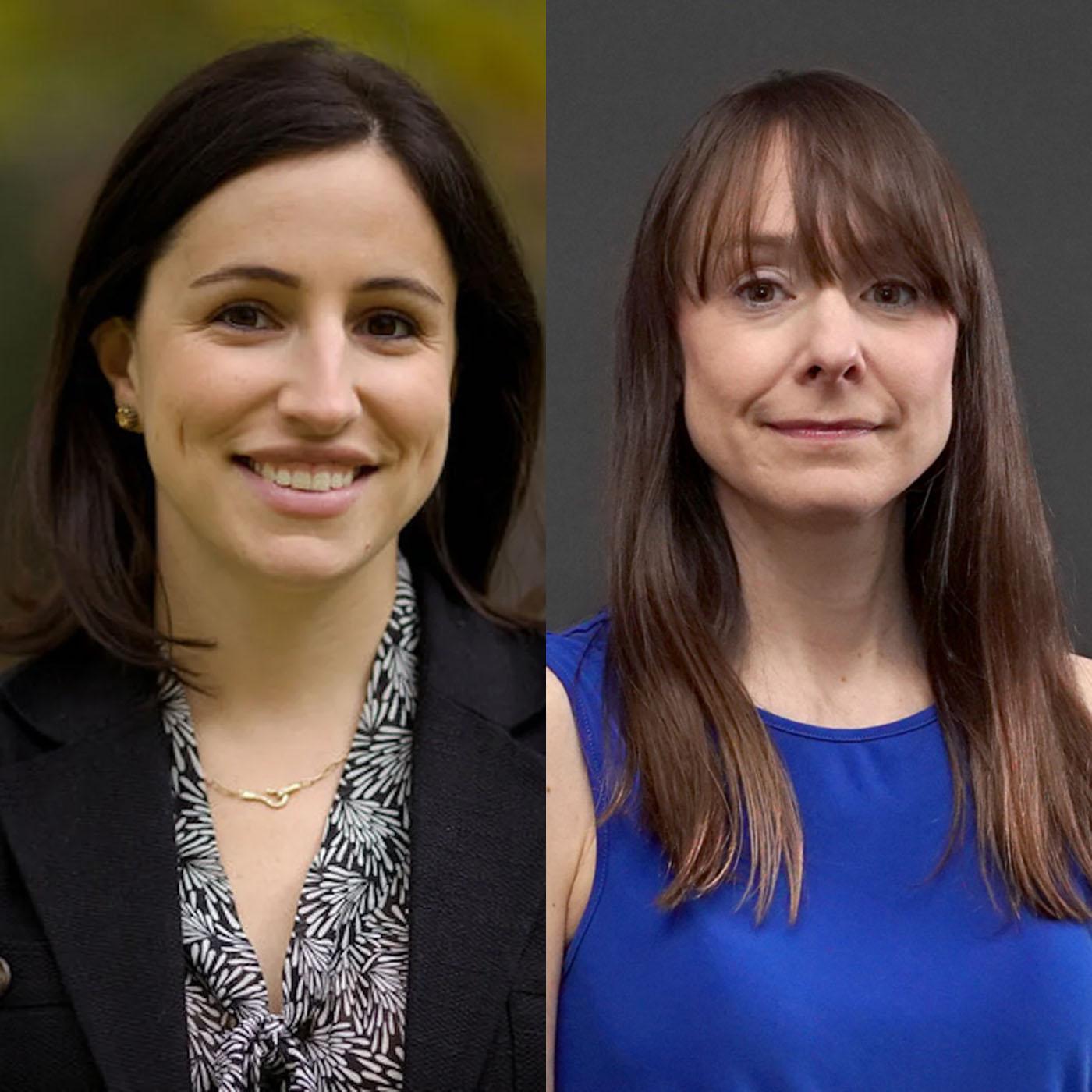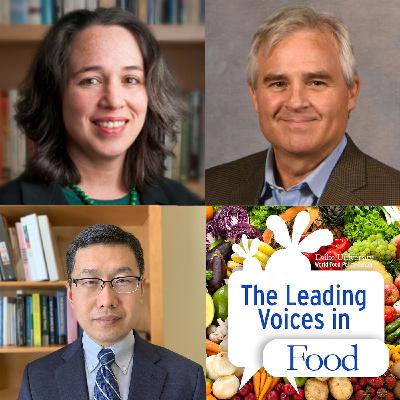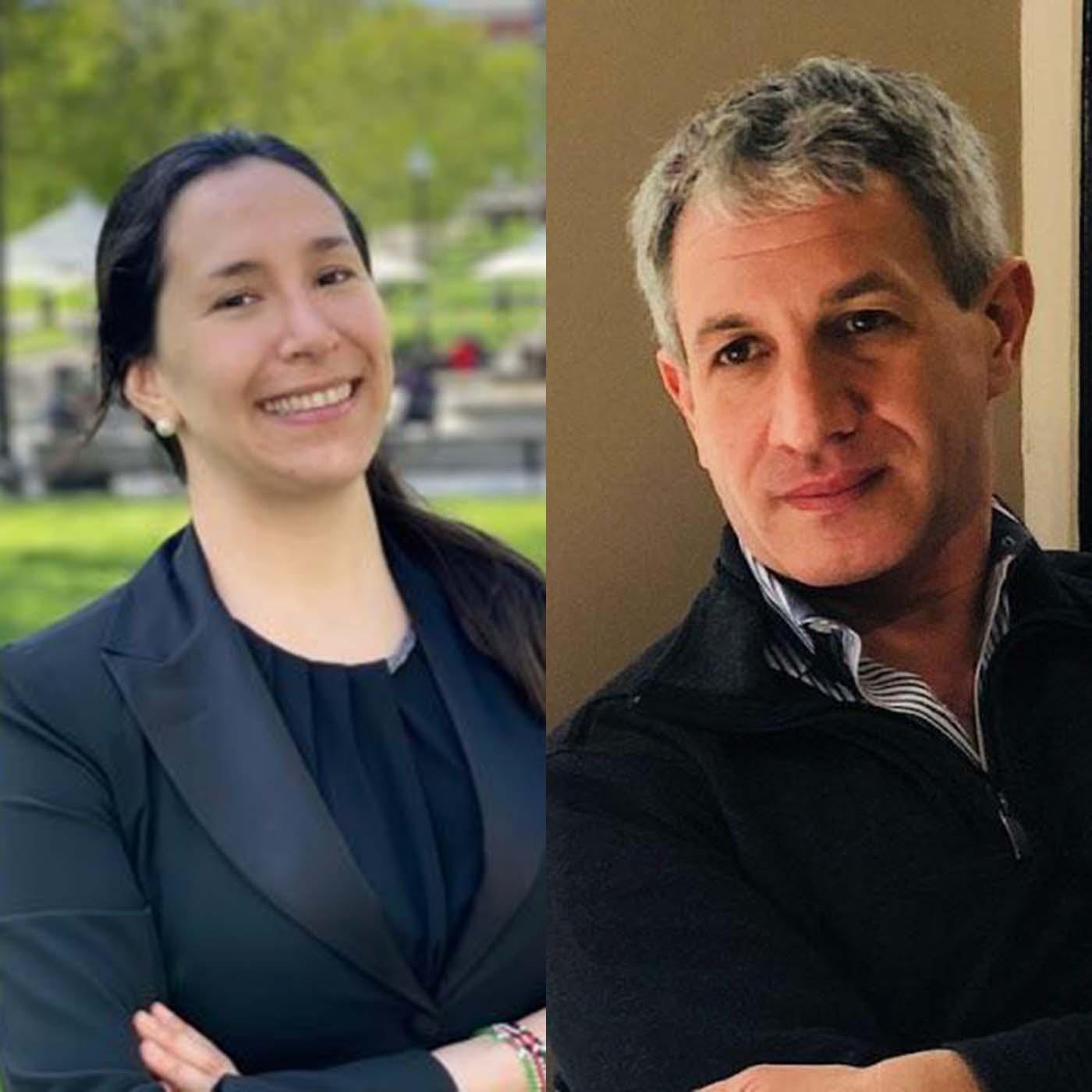E285: Gut instincts, food, and decision making
Description
The gut is in the news. It's really in the news. Catapulted there from exciting developments coming from laboratories all around the world. Links of gut health with overall health are now quite clear and surprising connections are being discovered between gut health and things like dementia and Alzheimer's. But how does the gut communicate with other parts of the body in ways that make it this important, and where does the brain figure into all this? Well, there's some interesting science going on in this topic, and a leading person in this area is Dr. Diego Bohorquez. Dr. Bohorquez is the associate professor of medicine, of molecular genetics and microbiology and of cell biology at the Duke University School of Medicine.
Interview Transcript
Diego, your bio shows that you blend work in nutritional biochemistry, gastrointestinal physiology, and sensory neurobiology. It took me a little time to figure out just what these things are, but what this represents, to be a little more serious, is a unique ability to understand that the different parts of the body, the gut and the brain in particular, interact a lot. And you're in a very good position to understand how that happens. Let's dive in with the kind of a basic question. What got you interested in this interaction of the gut with the brain and why care about it?
Yes. Kelly, I think that that's all technicalese for saying that we are at the interface of food, the gut, and the brain. Apart from the fact that we are what we eat and if we truly believe that then food will be shaping us. Not only our body, but also like our belief systems, our societal systems, and so on and so forth. I don't think that that is anything new. However, what is new is the ability of the gut to guide our decision making. And it was interesting to hear in your introduction that now the gut is all in the news. In 2005 when I came to the United States, and I was at North Carolina State University, and I joined a graduate school. I remember taking a graduate course in physiology in 2007. And when the professor opened the session on gastrointestinal physiology, he said the gut is one of the most misunderstood and mysterious organs. It has almost as many neurons as the spinal cord, or more. But honestly, we don't give a lot of respect to the gut. We only think that it does some digestion and absorption, and we judge it more for the value of its products of digestion than what it does for the entire body.
And fast forward almost 20 years later now, partly my laboratory and other laboratories that have entered this field since some of our discoveries started to emerge, it's very clearly showing that the gut not only has its own sensory system that is behind what we call gut feelings. The gut feelings are actually real. But it actually can influence our decision making. Like specifically, we have shown that our ability to choose sugars and consume sugars and feel sugars and choose them over sweeteners, it can be pinpointed to a specific set of cells in the intestine called neuropod cells and specific receptors in those cells. And the intestine is right after the stomach. And this is where these cells are exposed to the surface of the gut and detect the chemical composition of food to guide our decision making.
Let's talk about that a little bit more. So, you've got this axis, or this means of communication between the gut and the brain going on. And let's talk about how it affects what we eat. You just alluded to the fact that it's pretty important. What does it tell us? What to eat, how much to eat? What we like to eat? When we're hungry, when we've had enough? How does this affect our eating?
We are beginning to understand how much it affects this eating. And obviously we are departing from understanding, right? And an understanding is cognitive. In the 1500s is when the idea of 'we think therefore we are,' came online. And we needed to think things before we actually will understand them. But well before thinking them, we actually feel them. And you probably have noticed that. If anybody offers you maybe a cup of water at 5:00 AM, 6:00 AM, it will be very welcome. Especially with it's a little bit warm. If they offer you a steak at 5:00 AM you will run away from that. But in fact, you'll create distress I think unless you are like severely jet lagged. And a lot of those feelings not only come from the experience, but even if you blind are blindfolded, your gut will be able to evaluate what you just ingested.
And it is because the intestine, it is the point where those molecules in the meal or in the drink, will be either absorbed to become part of who we are, or will be excreting and expelled. And that absorption of who we are is dependent on the context. Like for instance, the part of the month, morning versus afternoon, health status, age, will influence specifically like at the molecular level, what it is that we need to continue to thrive.
It sounds like there's lots of potential for the gut and its interaction with the brain working in concert with the rest of the body. Things are in balance and working like they should be. But there are lots of things going on out there that disrupt that. Tell us more about that and how it affects eating. For example, the levels of obesity have risen so much in the past decades. How does the gut figure into that, for example. Could there be environmental things like the microplastics or exposure to toxins like pesticides and things that might be affecting the gut that throws the system off?
I think that that is a very timely question for the days. Over the last 10 years, we have documented that the gut has its own sensory system. And in fact, it's one of the most ancient sensory systems. At the very beginning, 600 million years ago, when cells started to coalesce into animals, multicellular organisms, they needed to eat. And they needed to not only find the food but create a sensory representation of the food. What do I mean by that? Eating algae is very different than eating bacteria, for instance. And the gut needed to have these sensors to be able to rapidly create first a representation, this is bacteria. And then put out the molecules to digest that bacterium or those bacteria. And then ultimately absorb them, turn them into metabolites and continue to thrive, right? Perhaps reproduce, coalesce and so on and so forth. This is a very important concept because our reality, the reality that you and I are having right now, it is guided by our senses. And we have multiple senses. Like for instance, we are able to communicate partly because of the sound that is going through our ears. And then there are inner hair cells that are picking up those waves. Passing that information to the brain, decoding it, and then the brain coalesces with everything else and saying like, 'okay, Diego, you're in a podcast. Make sure that you say something hopefully reasonable, right?' What the gut is doing, as a true sensory system, is also detecting the food that we have ingested, creating a rapid representation. It's not the reality itself. It is a representation of the reality. Because when we eat an apple, ultimately the gut, what it's doing is creating a representation that was an apple and not an orange. And then telling the brain, look, you're going to get some glucose, some fiber, a little bit of a skin. And you may need to adjust it with water, right? And then that will trigger the desire to, 'oh, maybe I should have also a cup of water.' Why does that have to do with, the societal issues that we are facing? Since the 1970s, we learned to disentangle the sensory experience of food, not only as humans or scientists, but also that was extrapolated to the society. So, if you go and look, and it is not a secret, it has been very well documented. For instance, the ability to put artificial sweeteners out there. It has really changed the health landscape. And it was just a normal progression of how it is that we humans think. We thought well, people consume sugars because they're sweet. If we take out the calorie and we just leave the sweetness, it will be totally fine because it's benign. You're not consuming anything else. However, the gut, you have promised the gut something sweet. That it has always, or almost always, invariably, been associated with a nutritional value. Then the gut is fed this information that is skewed. Then it has to go and adjust. And we actually have demonstrated that in the laboratory that when the neuro pods detect a non-caloric sweetener, they actually release a different neurotransmitter that communicates to the brain that artificial sweeteners have arrived at the gut, as opposed to glucose, which triggers the release of glutamate. And that glutamate is essential for the organism to know that we have consumed sugar.
Is it safe to say then that the body has evolved t
























